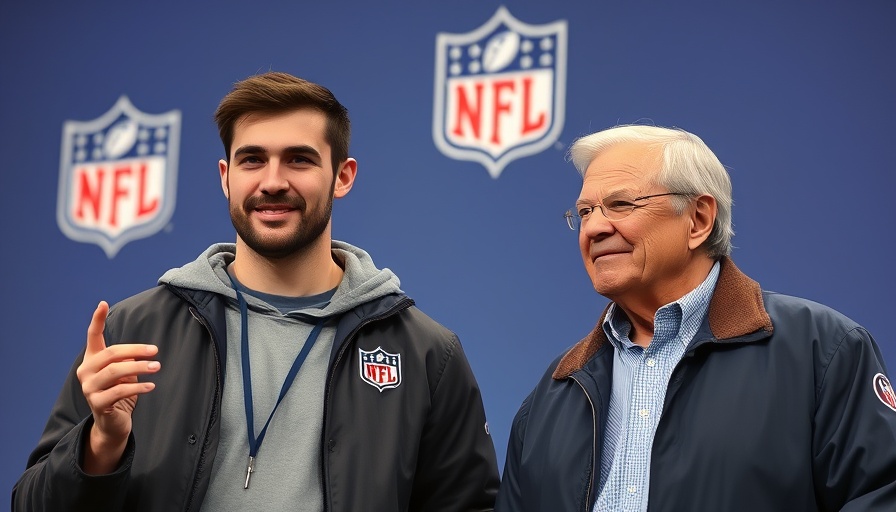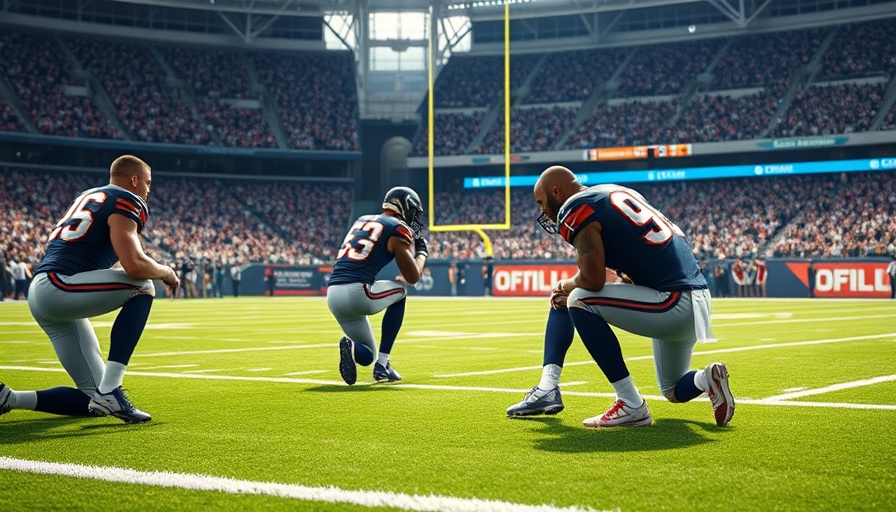
Olympics Flag Football: A New Playground for NFL Stars
As the world gears up for the modern Olympic Games, excitement buzzes around the addition of flag football, a new event poised to showcase both speed and teamwork. This past week, Minnesota Vikings’ standout receiver, Justin Jefferson, and linebacker Brian Asamoah II expressed their enthusiasm for the inclusion of flag football in future Olympics, emphasizing its unique position in bridging traditional sport with evolving formats.
Why Flag Football? Insights from Jefferson and Asamoah
In a recent discussion, both players spotlighted how flag football showcases athletes’ agility and skill without the risk of injury tied to full-contact formats—something that resonated deeply with them. Jefferson pointed out, "This is an incredible opportunity to display our skills on a global stage while minimizing the risk involved; it’s a game that allows us to be our best selves, creatively and athletically.” Asamoah echoed his sentiments, mentioning the excitement of representing not just their team, but their country, fostering camaraderie that transcends individual rivalries.
A Growing Trend in Sports: Evolution or Revolution?
The emergence of flag football as a premier event at the Olympics raises compelling questions about the future of sports. As the audience’s preferences evolve, will we see more variations of traditional games being embraced? Jefferson and Asamoah suggest it might be a pathway to revolutionize how athletes engage with their sport and inspire the next generation. Flag football's inclusion symbolizes a shift toward inclusivity and adaptability, inviting newcomers to the world of football while maintaining excitement for seasoned fans.
Connecting Cultures Through Sport
Another central theme in Jefferson and Asamoah's discussions was the cultural impact of sports. With flag football allowing players from diverse backgrounds to collaborate on a global scale, there's a tremendous potential for cultural exchange. Flag football could serve as a bridge uniting fans and players from varying backgrounds, demonstrating how common goals in sports can dissolve societal barriers.
Public Response: Hits and Misses
As this new Olympic event draws nearer, public opinion remains mixed. On one hand, fans of traditional formats might view this shift with skepticism, worried the essence of the game is diluted. However, many see it as an exciting evolution, a chance to witness aspects of the game rarely highlighted in professional football. The positive traction surrounding flag football can be traced back to the sport's growing grassroots efforts, which foster inclusive play—making it an inviting option for youth leagues.e
Looking Ahead: The Future of Flag Football
The exponential growth of leagues and national programs has positioned flag football at the forefront of the sports conversation. As the Olympics approach, anticipation builds around how established NFL stars like Jefferson and Asamoah could influence the game’s trajectory and inspire budding athletes. What does the future hold? With their combined efforts, an era of both innovation and tradition might fuse together in the world of athleticism.
As enthusiasts, it’s crucial to keep the conversation going. Will flag football succeed in uniting global players on the Olympic stage? Dive into these thoughts as we reflect on the continually evolving landscape of sports infused with creativity, teamwork, and pioneering endeavors!
 Add Row
Add Row  Add
Add 




Write A Comment